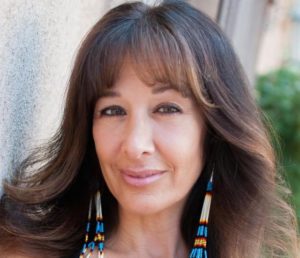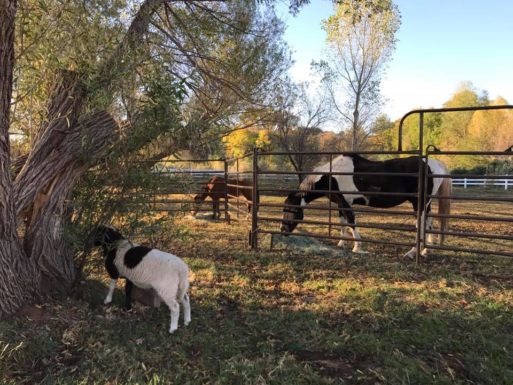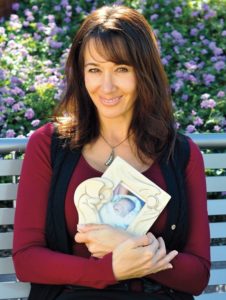Today SevenPonds speaks with Dr. Joanne Cacciatore, Ph.D. a psychologist and educator who specialize in helping clients navigate the experience of traumatic grief, especially in the wake of the death of a child. The founder of the MISS Foundation, an international nonprofit which provides counseling, advocacy, research and education to bereaved families, she is a professor at Arizona State University and the author of several books, including the critically acclaimed “Bearing the Unbearable: Love, Loss and the Heartbreaking Path of Grief.” Dr. Cacciatore is also the founder of the Center for Loss and Trauma and the Selah House Care Farm and Respite Center in Sedona, Arizona. Perhaps most importantly, she is the mother of five children, “four who walk, and one who soars.”
Editor’s note: This interview has been edited for length and clarity.

Credit: wisdompubs.org
Kathleen Clohessy: Thank you so much for speaking with me today, Joanne. I know you’re very busy!
Joanne Cacciatore: You’re welcome!
Kathleen: So, I want to talk with you a bit about your book, “Bearing the Unbearable,” which I absolutely loved. But first I wanted to ask you about something I just learned about — something you’re doing in connection with the MISS Foundation called the Care Farm. Can you tell me a little about what that is?
Joanne: Sure! The care farm concept actually originated in Europe, where there are thousands of care farms operating today. The concept is deceptively simple. People benefit physically, psychologically and spiritually from being outdoors in the sunshine, performing hard physical labor and connecting with animals, especially animals who have been traumatized and abused. On a care farm, people with no farming expertise participate in these activities while also receiving psycho-education, counseling and support. In Europe and the U.K., care farming has been very successful in helping vulnerable groups, such as prisoners, people with mental health disorders and those struggling with substance abuse. But our center is the first in the world to implement a program of care farming for traumatic grief.
Kathleen: That sounds fascinating! Is it a live-in program or do people just visit the farm?
Joanne: Right now we offer a day care program; overnight accommodations are limited to one family. But our goal is to create a facility that can accommodate several families at a time. In fact, we are now in the process of building the Selah House Care Farm and Respite Center, which will allow us to do just that. Thus far we’ve raised about $76,000 towards the project. But we’re still a ways from our goal. We need about $500,000 to complete the work.
Kathleen: What does the current program consist of?
Joanne: There are three aspects to the program. The first is creating connection, which happens when our grieving clients care for our rescue animals. Right now we have four horses, seven sheep and four dogs on the farm. All were rescued from situations where they endured horrible abuse and neglect. Our clients empathize with the suffering these animals have gone through, and the animals, for their part, accept our clients just as they are. That creates an incredible connection. And connection is what sustains us in life. It is what allows us to be more human, more compassionate, more loving and, ultimately, more able to open our hearts to our grief.

Rescued animals at the Selah House Respite Center and Care Farm
Credit:facebook.com/SelahHouseCarefarm
The second part of the program focuses on physical well being. Working on the farm, our clients get out in the sunshine and do really hard, physical labor, which is good for both the body and the mind. We also focus on good sleep hygiene. Many people who have experienced grief and trauma have difficulty sleeping, yet sleep is central to physical and emotional health. So we work with them on strategies to improve their sleep quality. One of these, of course, is being physically tired from working on the farm.
The last aspect is contemplative practice — which includes things like meditation, yoga, and barefoot hikes through the mountains around Sedona. And, of course, we provide individual counseling as well.
Kathleen: What a wonderful program! How can our readers learn more about it?
Joanne: Anyone who wants to learn more about the program can visit the Center for Loss and Trauma online. The website has a lot of information about the Care Farm and what we do there. There are photos of the center and several videos that provide some background about me, the families I work with, our rescue animals and how it all came to be.

Joanne holds a photo of her infant daughter Cheyenne, who died at birth
Credit: raisingarizonakids.com
Kathleen: Great! Now I’d like to shift gears a bit and ask you about your work. You specialize in “traumatic grief.” What exactly does that mean? Isn’t all loss and grief traumatic?
Joanne: All loss is painful but not necessarily traumatic. For example, imagine that your 90-year-old grandmother is dying of cancer. The disease has progressed slowly and she is reaching the end of her life. Her family is gathered around her; her pain is well-controlled. She isn’t suffering. When she dies, her family will be sad and they will miss her. But they will have the comfort of knowing that she experienced what most of us would call a good death.
Now imagine instead that this same 90-year old grandmother was found murdered in her bed — how different that would feel. That’s the difference between grief and traumatic grief.
Kathleen: So traumatic grief typically follows an unexpected or particularly violent death?
Joanne: Yes: Any sudden or unexpected death, violent or disfiguring death, homicide, suicide, or death that follows prolonged suffering can provoke traumatic grief. And the death of a child of any age from any cause is always traumatic for the parents. It doesn’t matter whether the child is a newborn or 50 years old.
Kathleen: How does the experience of traumatic grief differ from “ordinary” grief?
Joanne: Traumatic grief is shocking in its intensity, so much so that it overwhelms the person’s ability to cope. Any death is disorienting, and all grief causes a certain degree of disequilibrium. But traumatic grief permeates every aspect of our being. We feel uprooted, and insecure, and our trust in the world as we once knew it is gone. It is loss so unbearably painful that the grieving person simply can’t adapt without an enormous amount of support.
This concludes the first part of our interview with Dr. Joanne Cacciatore, Ph.D. Please come back next week for part two, when we talk to Joanne about how our grief-and-suffering averse culture compounds traumatic grief.

 What Is Traumatic Grief?
What Is Traumatic Grief?


 The Spiritual Symbolism of Cardinals
The Spiritual Symbolism of Cardinals

 Flawed Kidney Function Test Discriminated Against Black Patients
Flawed Kidney Function Test Discriminated Against Black Patients














